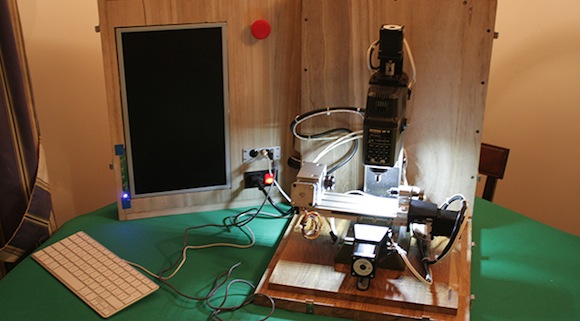
Second only to a lathe, a mill is one of the most useful tools to have in a shop. For [juppiter], though, a proper multi-ton mill would take up too much space and be a considerable investment. His solution to his space problem is actually very clever: he converted a small, inexpensive benchtop mill to CNC control, and put everything in a nice box that can be tucked away easily (Italian, here’s the translation).
The mill [juppiter] chose for the conversion was a Proxxon MF70, a very small mill made for jewelers and modelers. After buying a CNC conversion kit that included a few NEMA 17 motors, bearings, and mounting plates, [juppiter] set to work on driving these motors and controlling them with a computer. For the stepper drivers, a few industrial motor drivers were sourced on eBay, driven by an i3 miniITX computer built into the mill’s box. Control is through a touchscreen LCD and a Bluetooth keyboard and mouse.
So far, [juppiter] has crafted a very elegant wood and brass CNC controller that allows him to jog the axes around and set the home position. It’s an excellent build that really shows off the power and ability of these inexpensive desktop mills.












